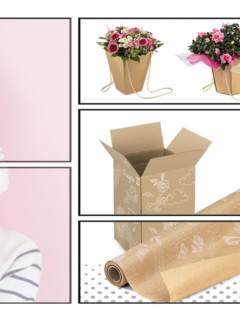With the action programme “Perspectives for Women”, Rajapack GmbH is committed to three organisations that work throughout Germany on the topics of training and equal opportunities in the workplace, integration of women and girls, and protection of women from violence. We fully support the work of each organisation and would like to give them the opportunity here to introduce themselves and their commitment in a little more detail.
Questions for Jutta Speidel from Horizont e.V.
Today our questions go to Horizont e.V., the initiative for homeless children and their mothers in Munich. Thank you, Ms Speidel, for answering our questions!
Who is the person answering our questions? Please introduce yourself briefly…
The popular actress Jutta Speidel founded the non-profit organisation HORIZONT 20 years ago. In addition to her work for film and stage, she has since been very committed to helping homeless women and their children in Munich.
Can you describe the life of a person you have supported that has particularly touched you?
“Almost all mothers and also children who come to us are traumatised, some of them severely. They have a background of violence or flight, are marked by fear and humiliation. Of course, there are always cases that shake us to the core, when these people have experienced things whose very idea is unbearable for us.
But on the other hand, there is always the particularly beautiful experience when we have managed, with our combined efforts, to strengthen a family to such an extent that they will eventually take the step back into society, into an independent life. Many former residents keep in touch with us. And that is also touching, to see how the women and also children can then develop further with a completely new perspective.”
Women find protection from violence and abuse in women’s shelters. To what extent are there similarities, where are the differences in your work?
“The HORIZONT house is also a shelter. By not disclosing the whereabouts, we try to protect our residents from existing danger as best we can. However, the women who come to us with their children must have been granted homeless status. They are then officially assigned to us by the Office for Migration and Housing. One difference is certainly that our focus is on families, i.e. mothers with their children. We don’t have single rooms, but 24 flats with their own kitchen and bathroom, which serve as a place of retreat for the families and where they can find peace. First of all, of course, it’s about taking a breath and getting a sense of security. Then it is about building up the women and children on all levels so that they are eventually able to regain their footing in society. This starts with support in coping with everyday life, e.g. by teaching them German, accompanying them when they go to the authorities, helping them with their homework or looking after their children. And very important is the processing of traumas through appropriate therapies. We have a strong team of socio-pedagogical experts, and the residents are looked after around the clock.
Describe to us the tasks and the importance of a family coach. What was the motivation for setting up this special project that RAJA supports?
“A family coach works with the whole family as a sensitive structure, he does not only focus on, for example, a child who is currently displaying behavioural problems. It is about mutual perception, about inner dynamics and mechanisms. We often experience that mothers are so burdened by past experiences that they are not able to take on a reliable or loving role towards their children. Many women have no support from the parental home because there is no contact. They feel overwhelmed and left alone when dealing with their children. They have great difficulties in bringing up their children, e.g. in setting fixed structures, setting limits and communicating reliability. A positive development of the children is thus endangered. In such cases, selective help is not enough. What is needed is a holistic, systemic analysis, support and reappraisal by a family coach.”
HORIZONT e.V. was founded by you in 1997. What was the original motivation for you, was there a specific experience?
“I founded HORIZONT after I happened to meet some children in a homeless shelter in Munich during my work. That was a shocking and drastic experience for me. That was 20 years ago now. Since then we have fought a lot and achieved a lot, but we don’t want to rest on our laurels. Now, for example, we are building a second HORIZONT House. I am still very active as the first chairperson, developing visions and driving new projects forward together with my team.
Can you describe the life journey of a person involved in the project that particularly touched you? Why will the work of the family coach change the situation of families in the long term?
“Themothers are individually supported and relieved by the family coach by being shown parenting methods and procedures for dealing with the children. It is very important to analyse abnormalities and make them visible so that further necessary steps can be decided together. Working with the family coach will strengthen the women and give them self-confidence. It will help them to structure their everyday life better. And it will help them to better respond to the children’s needs for love, understanding and patience. We want to strengthen the family structure so that all conditions are in place for a positive life path for all family members, even after the time in the HORIZONT house.”














